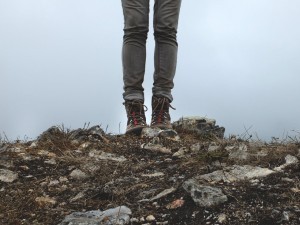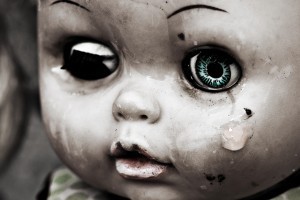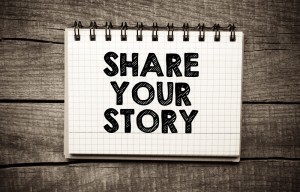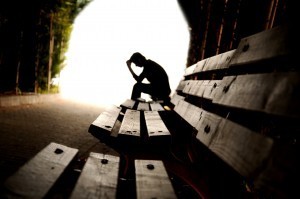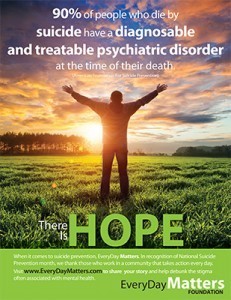Rachel Thompson's Blog, page 18
October 26, 2014
Why I Chose the Title “Feminist” by 14yo guest Makena McElroy
Today we have a very special guest, 14-year-old Makena McElroy has me speechless. What a brain! Please welcome her to the blog and be sure to check out her article “Young Voices | A 14-Year-Old’s Look at Rape Culture” on Sweatpants & Coffee. Comments are welcome. Trolls are not.
I call myself a feminist. I could choose the word “egalitarian.” I mean, I do believe in equal rights for all people. Why not just label myself that and call it a day?
But I choose to call myself a feminist, because feminism means that you believe in the equality of the sexes. And I do.
People have a skewed definition of feminism.
Isn’t that dismissive of men? – People ask me. If you call yourself egalitarian, no one will think you don’t care about men. But I choose the word feminist because I want to acknowledge that in every single country in the world, men are held in higher regard than women. In some countries, this means that women can’t drive, can’t vote, can’t leave the house without a man’s permission, oversight, and approval. In the US, it means something different. It means a few years from now, I will be able to get my driver’s license, vote, and own property. And maybe I should be happy enough with that. But I’m not; I believe in the equality of the sexes, and there is much more to equality than these few things.
In some countries, this means that women can’t drive, can’t vote, can’t leave the house without a man’s permission, oversight, and approval. In the US, it means something different. It means a few years from now, I will be able to get my driver’s license, vote, and own property. And maybe I should be happy enough with that. But I’m not; I believe in the equality of the sexes, and there is much more to equality than these few things.
I believe that little girls should see their gender reflected on TV, in books, and in movies as whole, developed characters, not as accessories for guys. I think that no little girl should have to hear her brother being told to “stop being such a girl.” I think that little girls should be able to look at a list of presidents and feel proud to see women on that list. I think that what I’m saying should apply to every little girl no matter where they live.
Women make up 51% of the United States population, and 0% of US Presidents.
I call myself a feminist out of respect for the women who came before me, the women who rallied and protested and fought until they won the right to vote. I call myself a feminist because I want to be like them. They, too, were bombarded with anti-feminist propaganda. They, too, were called crazy for wanting equal rights. I stand with their memory.
I’ve been called a “crazy feminist,” by boys and girls alike. I know that being a feminist is a “turn off” for some guys. But feminism is way too important to me for me to back down just because other people think I’m crazy. In a way, their criticism solidifies my beliefs. If caring about women’s rights is a turn off for guys, something needs to change.
Emma Watson’s speech at the UN was powerful. Important. And true. She talked about how feminism, in our society, is perceived mainly as man-hating misandry. But she knows, and I know, that that is nowhere near the message of feminism.
Feminism is women’s right to vote. Feminism is saying it can’t end there.
Feminism is ending the wage gap between genders. Women make 77 cents for every dollar a man makes. That can’t be true, you say. Actually, you’re right; that’s 77 cents for white women. For black women it’s 69 cents and for Latina women it’s 59 cents to a man’s dollar.
Feminism means wanting another role model in the media for girls besides “the love interest.” Feminism means wanting another physical role model other than the stick thin supermodel. Feminism is not wanting girls to be defined by their weight, their looks, or how much skin they do or do not show. Feminism is being able to wear that dress, that skirt that makes you feel like the goddess you are without having to worry that you will be stared at, whispered about, cat called, judged for what you wear when there is nothing wrong with showing skin and it shouldn’t mean anything about who you did or did not sleep with. Feminism is being able to cover your entire body and be given the same respect.
Feminism is wanting the words “slut” and “whore” to never be used by anyone again. Ever.
Feminism is saying that 1 in 4 women are raped in their lifetime and we need to do something other than blame the victims for how they dressed, or say the solution is to not go out alone. There will always be a woman in a dress in a parking lot alone. We need to change our attitudes toward this problem.
Feminism means never using the argument “men get raped too” as an excuse or a way to stop people talking. Because “men get raped” should be its own sentence, not something tacked on to the end of an argument against women’s rights.
Feminism is acknowledging that while women in America have come so far, the battle for gender equality is far from over.
I will fight for that equality. For me, for the people who come after me, and for the ones who came before me, the people who created the word “feminist.”
About Makena McElroy:
Makena McElroy is a 14-year-old sophomore who is fond of all things nerd. If she is not at the theater, she can be found catching up on the latest episode of Doctor Who. Makena writes for Sweatpants and Coffee’s Young Voices column. She lives in California with her family and her computer.
Sign up for my newsletter and never miss a post again! I will never share your email and that’s a promise. Follow me on Twitter @RachelintheOC or @BadRedheadMedia for social media, branding, or marketing help. Increase your blog traffic by participating in #MondayBlogs (a Twitter meme I created to share posts on Mondays — no book promo) and entering my free feature giveaway.
Broken Pieces is still going strong, #1 on Amazon’s Women’s (paid) Poetry list. Pick up a copy today, one for a friend. Broken Places will be out by Christmas from Booktrope.
Starting NOVEMBER 3: Author Social Media Boot Camp! Take a look: group sessions for authors on a budget. Now you too can get affordable, effective help FAST! Follow @ASMBootCamp on Twitter and sign up today here!
All content copyrighted unless otherwise specified. © 2014 by Rachel Thompson, author. All rights reserved. Permission is granted to use short quotes provided a link back to this page and proper attribution is given to me as the original author.
Image courtesy of unsplash.com
Related articles across the web
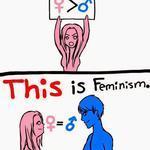 Why the World Still Needs #Feminism
Why the World Still Needs #Feminism So, You Hate Feminism? You Won’t If You Understood What It Means!
So, You Hate Feminism? You Won’t If You Understood What It Means! How to talk about feminists… as an informed individual
How to talk about feminists… as an informed individual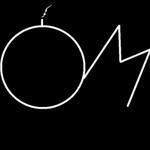 Guest Post – Our Misconstrued Perception of Feminism
Guest Post – Our Misconstrued Perception of Feminism On Thanking our Feminist Foremothers
On Thanking our Feminist Foremothers 30 Feminist Lessons in 30 Years
30 Feminist Lessons in 30 Years Kristen Stewart and 5 other surprising celeb comments on feminism
Kristen Stewart and 5 other surprising celeb comments on feminism
October 19, 2014
What Can We Learn from the Stephen Collins Case? by @TruthIsHers
Trigger Warning: This post discusses child sexual abuse. Those sensitive to this topic need to exercise both caution and good self-care if they choose to read it.
Last week the internet exploded with the news that actor Stephen Collins had confessed to multiple incidents of child sexual molestation. Collins is best known for his role as the minister-father of the Camden family in the long running television show 7th Heaven. Since then he has had a recurring role in Scandal and was also in the process of filming for the Ted 2 movie.
Over forty years ago Collins allegedly exposed himself to three girls between the ages of 11 and 15. With at least one of those girls there was also touch involved. Apparently, Collins’ soon to be ex-wife taped the confession, without his knowledge, during a marriage counseling session in 2012. While the tape was made available to the New York Police Department at that time no charges were pursued due an expired Statute of Limitations.
As a result of these tapes being leaked to the press, by an as yet unknown source, criminal investigations have now been opened in both New York and California, the other location of one of the sexual assaults, Collins has been released or terminated from all of his acting jobs, networks have stopped broadcasting re-runs of 7th Heaven and his talent agent cut ties with him. He voluntarily resigned his position on the national board of the Screen Actors Guild.
As a Trauma Recovery Coach I’ve been asked many times this week to comment about Collin’s confession and the resulting repercussions. As a survivor of years of childhood sexual assault myself I can’t deny that this makes my anger rise up. I know what it’s like to live with the after effects of that kind of trauma. So far, I’ve endured 25 years of Post Traumatic Stress Disorder and Depression. While I’m hopeful of reaching remission sometime in the future, I’m not holding my breath.
I don’t see a great deal of value in my dissecting the details of Collin’s case in order to give a well thought out opinion of whether he’s innocent or guilty. From a personal standpoint it’s tempting! But I don’t know what greater good that would do for Survivors, whose voices I strive to represent and encourage every day.
However I think there is tremendous merit in looking at what we can learn from the situation on a larger scale. Collins’ case has much to teach us about sexual assault perpetrator stereotypes, victim stigmatization and ways parents can protect their children from being victimized.
Many people were shocked to hear of the allegations against Collins. His role as the beloved father & minister in 7th Heaven and well respected position within the acting community definitely placed him in a “least to be suspected of being a sex offender” category. The reality though, is that no one can be removed from the potential offender list. No one.
Despite being confronted with the reality of who sexually offends over and over again, our culture continues to cling to the stereotype that they are scruffy, unkempt middle aged men who live in their mother’s basements subsisting on Hot Pockets, unable to hold a job, driving a cargo van and spending their days slouched on a bench in the local playground leering at children they don’t know.
But the reality couldn’t be farther from the truth. Ninety percent of children who are sexually assaulted know their perpetrator. Ninety percent! The typical sexual offender isn’t that mysterious stranger we teach our children to run away from. He/She is their teacher, soccer coach, family member, minister, relative or even the sweet lady who lives down the street and always has an open door and fresh cookies for the neighborhood children. We must ditch our stereotypes and expand our minds if we’re ever going to properly educate our children about who is a danger in their lives.
The Collins’ case also provides us with valuable information about how child victims respond to being sexually assaulted. I have heard people question, over and over this week, why the alleged victims in this case didn’t come forward immediately after their assault to report the crimes. As a society we need to stop evaluating why a child does or doesn’t report sexual assault with an adult’s logic and reasoning. We cannot place adult expectations onto children whose emotional and cognitive processing capabilities have not yet fully developed.
Having worked with hundreds of survivors of childhood sexual assault I can tell you why most children don’t report: shame, safety and confusion. I will never be able to explain the depth and breadth of shame a child feels when they are sexually assaulted to someone who hasn’t had the experience themselves. That shame gives rise to self-blame, self-loathing and emotional pain that shake a child to their very core. Demanding a child report their assault in the midst of that emotional tornado is a very difficult thing to ask.
For children who are assaulted by a family member on whom they are dependent for care, safety is a huge reason for why they don’t report. Children are dependent on adults for food, shelter and protection from life’s difficulties. They are incredibly vulnerable beings in a world filled with potential dangers. Fostering dependence on one’s caregiver is an innate, hard wired human characteristic. When one of the people who is supposed to keep them safe is in fact hurting them, a child will often choose denial over acceptance. We need to understand and respect this powerful dynamic rather than judging children for trying to preserve their sense of safety in the world.
The shame a child feels as a result of being sexually assaulted and their fears about their safety combine to create great confusion. Their brains are not yet fully developed, leaving them ill-equipped to deal with such significant and complex situations. We cannot expect them to be able to sift through the incredible vortex of emotions and consequences they fear will befall them in order to come to a logical conclusion. The best way to avoid a child having to face this situation is to help prevent it from ever occurring.
I always give parents two pieces of advice to help protect their child from sexual assault: teach them to be 100% obedient to no one and always keep communication flowing and non-judgmental with their child. I was raised in a generation where children were taught to obey their elders without question. We were expected to respond with immediate compliance when a teacher, minister, coach, relative or known neighbor gave us a directive. Doing otherwise earned sharp, and often physical, reprisals.
However, children who are taught this standard of 100% obedience to any adult with a position of authority in their lives, are vulnerable to having that expectation used against them. When 90% of sexual assaults are perpetrated by someone our child knows, we must teach them to have a healthy resistance to obeying any command that makes them feel uncomfortable.
To help protect our children even further we must keep lines of communication both open and non-judgmental. Our kids need to know that they can come to us at any time to discuss any topic and we will be open to listening and helping them. We should ask them, whenever they have engaged with a new situation or group of people, if they felt safe during their time there/with them. When we cultivate open communication, especially about issues of safety, we dramatically increase the chances that our children will report any discomfort with an individual before they are assaulted. And we’re also more likely to receive their report of an assault if one occurs.
I don’t know what will happen with the recent charges of sexual molestation against Stephen Collins. But what I’m certain of, is that if we take these lessons we can learn from his case and apply them in ourl lives, we will diminish the chances that other children will fall victim to sexual predators.
Sign up for my newsletter and never miss a post again! I will never share your email and that’s a promise. Follow me on Twitter @RachelintheOC or @BadRedheadMedia for social media, branding, or marketing help. Increase your blog traffic by participating in #MondayBlogs (a Twitter meme I created to share posts on Mondays — no book promo) and entering my free feature giveaway.
Starting OCTOBER 27: Author Social Media Boot Camp! Take a look: group sessions for authors on a budget. Now you too can get affordable, effective help FAST! Follow @ASMBootCamp on Twitter and sign up today here!
All content copyrighted unless otherwise specified. © 2014 by Rachel Thompson, author. All rights reserved. Permission is granted to use short quotes provided a link back to this page and proper attribution is given to me as the original author.
Related articles across the web
 Report: ‘7th Heaven’ star Stephen Collins ‘confesses on tape’ to child molestation
Report: ‘7th Heaven’ star Stephen Collins ‘confesses on tape’ to child molestation Police descend on California home of ‘disgraced’ 7th Heaven star Stephen Collins after false gunshot report amid explosive allegations of child abuse
Police descend on California home of ‘disgraced’ 7th Heaven star Stephen Collins after false gunshot report amid explosive allegations of child abuse Report: ‘7th Heaven’ star Stephen Collins ‘confesses on tape’ to child molestation
Report: ‘7th Heaven’ star Stephen Collins ‘confesses on tape’ to child molestation Stephen Collins, Child Molestation Investigation: 5 Fast Facts You Need to Know
Stephen Collins, Child Molestation Investigation: 5 Fast Facts You Need to Know
October 12, 2014
The Day I Became Anne Frank by Guest Sarah Fader (@osnsmom)
Please welcome Huffington Post blogger and Stigma Fighters leader Sarah Fader to the blog today as she shares her story of battling depression.
When I was a teenager, I began struggling with anxiety and depression. I would wake up to my heart racing uncontrollably. My mental health issues were like an annoying person that insisted on tagging along with me everywhere I went. As much as I told the person to go away, she insisted on staying with me. So I learned to live with her, as irritating as she was. She was a nuisance at first, until I began to use her. I learned that the pain that depression caused made me a better artist.
As an adolescent I attended the “Fame” high school in New York City. I was studying theater there. During my sophomore year I played the role of Anne Frank. Also during this time, I was suffering a great deal with clinical depression. I was having trouble eating, showering and functioning. I was in a tremendous amount of emotional pain.
I knew the pain was going to be there no matter what. It was an unwelcome guest, a tagalong and an annoyance. So I used it . As I played the role of Anne Frank, I thought about my emotional agony and I used it to convey how Anne felt. She was trapped. She was in love with Peter, but there was no future for the two of them. Her death was imminent. Her pain was my pain. I became Anne.
. As I played the role of Anne Frank, I thought about my emotional agony and I used it to convey how Anne felt. She was trapped. She was in love with Peter, but there was no future for the two of them. Her death was imminent. Her pain was my pain. I became Anne.
I’ll never forget that day. I held my scene partner, Nick’s, hands and looked into his eyes searching for something. Earnestly I thought, maybe he has the answer to my pain.
It was the best scene I ever performed during my time at Performing Arts high school. My classmates came up after the scene and congratulated me on my work. Little did they know that the reason that scene was so poignant, the reason that it was emotionally cathartic was that I was experiencing emotional turmoil. I wasn’t myself. I was consumed by a black hole otherwise known as clinical depression.
After graduating high school, I stopped pursuing theater for some time. Unfortunately, that left me with no outlet to express my intense emotions, so I developed an ulcer. I knew that I needed to find an alternative outlet for my emotions that wouldn’t reap havoc on my body. I went in search of what that might be.
Since that time, There have been moments when I’ve felt hopeless, moments where I’ve felt my heart pounding so hard I thought my rib cage would explode. There have been times that my entire body was tingling because I’d forgotten to breathe for an indeterminate amount of time. During these moments I’ve found a way to release these intense emotions.
Instead of using them to create a theatrical performance, I’ve transmitted these overpowering emotions into writing. I refuse to let my emotions stay inside of myself. Instead they will pour out of my heart and onto a page where they belong.
Writing provides me with a much needed release from clinical depression. When I write my feelings on paper I see what they are. They are no longer overwhelming. They are tangible. I can touch the words. I can read them aloud. I can see that they are just a series of words forming together to become coherent thoughts.
When I feel: I write.
When I write: I release.
When I release: I heal.
About Sarah Fader:
 Sarah Fader is the creator of the popular parent-life blog Old School /New School Mom. Her work can been found on The Huffington Post. Sarah is a native New Yorker who enjoys naps, talking to strangers, and caring for her two small humans and two average-sized cats. Additionally, like about six million other American adults, Sarah lives with panic disorder. She writes a column for Psychology Today called Panic Life. She is currently leading the Stigma Fighters campaign, which gives individuals with mental illness a platform to share their personal stories. Through Stigma Fighters, Sarah hopes to show the world that there is a diverse array of real everyday people behind mental illness labels.
Sarah Fader is the creator of the popular parent-life blog Old School /New School Mom. Her work can been found on The Huffington Post. Sarah is a native New Yorker who enjoys naps, talking to strangers, and caring for her two small humans and two average-sized cats. Additionally, like about six million other American adults, Sarah lives with panic disorder. She writes a column for Psychology Today called Panic Life. She is currently leading the Stigma Fighters campaign, which gives individuals with mental illness a platform to share their personal stories. Through Stigma Fighters, Sarah hopes to show the world that there is a diverse array of real everyday people behind mental illness labels.
Sign up for my newsletter and never miss a post again! I will never share your email and that’s a promise. Follow me on Twitter @RachelintheOC or @BadRedheadMedia for social media, branding, or marketing help. Increase your blog traffic by participating in #MondayBlogs (a Twitter meme I created to share posts on Mondays — no book promo) and entering my free feature giveaway.
Starting OCTOBER 27: Author Social Media Boot Camp! Take a look: group sessions for authors on a budget. Now you too can get affordable, effective help FAST! Follow @ASMBootCamp on Twitter and sign up today here!
At this writing, Broken Pieces is #1 on the paid Women’s Poetry list on Amazon. Click for a sample or go ahead, purchase a copy (eBook or print from Booktrope).
Top photo courtesy of freedigitalphotos.net
Related articles across the web
 I’ve joined the Stigma fight #StigmaFighters
I’ve joined the Stigma fight #StigmaFighters Help #StigmaFighters Become a Non-Profit
Help #StigmaFighters Become a Non-Profit You Don’t Look Sick and Other Lies
You Don’t Look Sick and Other Lies Healing is The Next Step in Coping With Mental Illness
Healing is The Next Step in Coping With Mental Illness Fighting Stigma
Fighting Stigma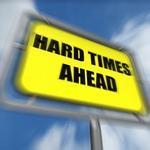 5 Ways Emotional Pain Is Worse Than Physical Pain
5 Ways Emotional Pain Is Worse Than Physical Pain
October 5, 2014
Saturated by guest Sarafina Bianco (@FinaBianco)
Please welcome author and domestic violence survivor Sarafina Bianco to the blog as she shares her story of abuse, suffering, and finally rebuilding.
*Trigger Warning*
It’s been five years since I left the house on Sunset, but it seems like it happened last week. Time escaping me like morning dew as the sun rises. I still remember that hot July morning, limping out of a sociopath’s playground toward freedom. The week before he held a gun to my head. The morning I left, he threw me down a flight of stairs.
Leaving meant I would live, but life didn’t begin again once I escaped. Instead, I suffered the aftermath of my abuser, something my family and friends tried to understand. I should’ve been happier without him, they said. And I believed them. There we sat, thinking the year and a half I lost with him was all that would be taken.
But that’s not what happened.
My abuse was sexual, physical, emotional and financial. The aftermath of each haunted me. I lost my job because he was my boss. Three days later, a man and his wife chained my Beetle to their tow truck and stripped me of transportation and, more than that, the tiny shreds of dignity I was still holding onto. Then, a month later my house went into foreclosure proceedings. Jobless, carless and homeless at the age of twenty six. All because I loved with the wrong guy.
The aftermath of each haunted me. I lost my job because he was my boss. Three days later, a man and his wife chained my Beetle to their tow truck and stripped me of transportation and, more than that, the tiny shreds of dignity I was still holding onto. Then, a month later my house went into foreclosure proceedings. Jobless, carless and homeless at the age of twenty six. All because I loved with the wrong guy.
Standing in the yard of the house I was losing, I stared back at black shutters, wondering when they would fall like I had. My mums were dead. And in many ways, so was I.
In another sense, I was more alive than I’d been. He couldn’t rape me in the shower or beat me before breakfast. I didn’t have to hold my breath before speaking. And normal bumps and scrapes looked plunging shades of eggplant and red-violet, each a saturated and deep reminder that physical injuries disappear faster than emotional ones.
Sometimes, when my head was noisy, I’d inflict my own wounds, throwing myself against sharp edges of furniture or cutting my legs with razors to watch myself bleed, to remember I was alive. My life was reduced to this. Too much to handle, I made myself suffer the same injuries he did. To ease the excruciating depression, anxiety and panic, I battered myself, hoping physical pain would mask the emotional: my own personal form of bloodletting. In the interim, I showed signs of PTSD and body dysmorphic disorder. This was my life now. Unrecognizable. Unforgiving. Unbelievably broken.
I begrudgingly accepted help from people who, just a year before, looked up to me. And I was embarrassed about it. Survival, after all, is the commonality among us all: our abuse and abusers may differ, but we each face the unfair, unfiltered aftermath. It’s the place where we lose ourselves before we relearn how to live.
Certain I couldn’t afford therapy, I knew it was time to quit holding so many secrets. So I started a tiny blog, sharing details as excruciating as the ones I’ve shared here.
Eight months after I left, strangers were reading my story. And one of them, a childhood survivor of abuse, reached out to me.
“There are free services,” he said. “My dad abused my mom while I watched. Non-profits offer therapy, if you’re lucky.” An hour later, I found one in St. Louis.
The wait list was long, six months until I could be registered. But knowing I would receive help pulled me out of some moments of sadness, and I kept writing my journey, hopeful my honesty would also be my release.
I started intense trauma therapy for survivors a year after I left.
a year after I left.
It took a long time for me to trust anyone, including my therapist, but I kept non-violently fighting. If I didn’t, suffering wouldn’t stop. I had no choice but to keep trying, to push through the discomfort and depression. A year later, I started seeing noticeable changes. I’d stopped hurting myself physically. And my blog was being nominated for awards I didn’t know existed.
Life reminded me it was worth living just in time to rebuild.
After three years of therapy and five years of surviving, I changed career paths, making a life as a writer and advocate. I wrote my blog into a book, detailing the remnants of a broken life in hopes society might, someday, better understanding the inner workings of abuse. And I will stand beside any woman who wants to share her horrors, because we all deserve to be heard.
My life is – once again – moving faster than I’m ready for. The House on Sunset was released on September 22nd, a baby of a book waiting for people to judge it. Old fears surface and threatened permanence. What if it sucks? What if my message is lost in the sadness?
Then I remind myself I’ve lived through worse than someone telling me they don’t like my writing. Bad reviews and infrequent sales are nothing. If I can survive at the hands of a man who tried to murder me, I can certainly rebound from something as small as an opinion.
There’s no denying life gets ugly. We all face adversity. It’s what we do in the aftermath, the choices we make and the beliefs we hold about them that define us. Nobody else controls that. Nobody else determines our worth.
I know I’m stronger than the naysayers and critics now, because I’m sharing my story anyway.
Image courtesy of marcolm at FreeDigitalPhotos.net
About Sarafina Bianco:
 Sarafina Bianco is the author of The House on Sunset, a memoir released on Amazon. She is a domestic violence survivor, blogger, columnist and activist. She is starting the Twitter campaign #domesticviolencechat, set to begin on October 1st: the first day of National Domestic Violence Awareness Month. You can find her on her blog, Twitter and Facebook. She also writes for The Flounce and The Good Men Project weekly.
Sarafina Bianco is the author of The House on Sunset, a memoir released on Amazon. She is a domestic violence survivor, blogger, columnist and activist. She is starting the Twitter campaign #domesticviolencechat, set to begin on October 1st: the first day of National Domestic Violence Awareness Month. You can find her on her blog, Twitter and Facebook. She also writes for The Flounce and The Good Men Project weekly.
Sarafina lives with her husband and three dogs in St. Louis, Missouri.
Sign up for my newsletter and never miss a post again! I will never share your email and that’s a promise. Follow me on Twitter @RachelintheOC or @BadRedheadMedia for social media, branding, or marketing help. Increase your blog traffic by participating in #MondayBlogs (a Twitter meme I created to share posts on Mondays — no book promo) and entering my free feature giveaway.
Starting OCTOBER 27: Author Social Media Boot Camp! Take a look: group sessions for authors on a budget. Now you too can get affordable, effective help FAST! Follow @ASMBootCamp on Twitter and sign up today here!
All content copyrighted unless otherwise specified. © 2014 by Rachel Thompson, author. All rights reserved. Permission is granted to use short quotes provided a link back to this page and proper attribution is given to me as the original author.
Related articles across the web
 Why We Stay: One Woman’s Lens Into The Psychological Layers of Suffering Abuse.
Why We Stay: One Woman’s Lens Into The Psychological Layers of Suffering Abuse. The Battle and the Aftermath……..
The Battle and the Aftermath…….. Waking up to child abuse
Waking up to child abuse Domestic violence survivors stay for a million reasons. Janay Rice’s is her own | Jessica Valenti
Domestic violence survivors stay for a million reasons. Janay Rice’s is her own | Jessica Valenti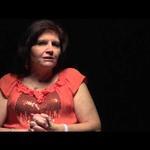 I Have a Voice: Laura
I Have a Voice: Laura Why ending domestic violence is our business
Why ending domestic violence is our business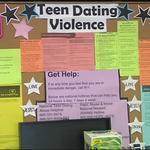 Spreading awareness about domestic violence
Spreading awareness about domestic violence
October 2, 2014
#MondayBlogs Giveaway October 2014
Since I created #MondayBlogs in late 2012, even I’m shocked at what an amazing success it has become! Thousands participate each week, generating more than 5,000 tweets! And it is because of all of you that we can say that with a lot of pride and a big ol’ smile! As a thank you to all you wonderful #MondayBlogs tweeps, we launched an ongoing, monthly giveaway contest in April and we couldn’t be happier with the response!
The Featured Monday Blogger giveaway is our way to say thank you for participating in #MondayBlogs by giving you more exposure for you and your blog. Each Monday for one month, you could have a different tweet sent out by @MondayBlogs to all our followers and be featured on IndieBookPromo.com! But wait, there’s more! Following you, the lucky winner, on Twitter would enter others into the next month’s contest!
Nice bit of exposure, don’t ya think?
That sound like something you’d be interested in?
If so, enter now!
Featured Blogger September 2014
Morgan Dragonwillow at The Dancing Muse
Happy Sharing,
Rachel, Will, and Kate
September 28, 2014
The Power of the Survivor Memoir by @TruthIsHers
The Power of the Survivor Memoir
by staff writer Bobbi Parish (aka @TruthIsHers)
Storytelling has always been a powerful, integral part of human life. We tell stories to entertain, impart knowledge, and record our history. A narrative is the easiest format for us to understand and relate to. Through it we connect with our past, information and other human beings in a way that would be difficult otherwise, especially before the advent of the written word.
Since time began, we have been telling stories through oral traditions, song and dance. Through the development of the written word, mass communication and international travel, storytelling has moved beyond the local tribe, town and clan. Now a story can be conceived of in someone’s mind anywhere and shared around the world with speed and ease. Because of this our world is flatter, more multi-cultural and most assuredly richer. The more developed the world has become, the more powerful the personal narrative has become.
For survivors of childhood abuse, telling their story is particularly powerful. At the very core of the after effects of childhood abuse is shame and a lack of self-worth that often dips into self-loathing. Those two forces pull the survivor into isolation, away from the eyes of the world where they believe others will easily see their glaring flaws.
and a lack of self-worth that often dips into self-loathing. Those two forces pull the survivor into isolation, away from the eyes of the world where they believe others will easily see their glaring flaws.
MEMOIR
When someone tells their story of abuse and survival through memoir it is a commanding force against the shame and worthlessness. In that simple step forward, out of the shadows to state their truth, they are not only claiming their worth but also choosing to stand in the light. “Here is my story,” they are declaring, “I’m not ashamed of it or myself. It’s worthy of being told and also being read.” That’s a fierce statement from someone who spent years engulfed in the flames of shame and worthlessness.
The boldness of a survivor publishing their memoir empowers other survivors as well. That isolation that abuse victims seek keeps them from one of the most healing tools for their recovery journey: community with safe, supportive peers. Gathering with other survivors provides camaraderie and encouragement. More importantly, it shatters shame. Abuse victims come to understand that others feel the same way they do, experience some of the same aftereffects of the abuse they do, and struggle to recover just like they do. It is liberating to an individual who has known little freedom in their life.
COMMUNITY
When a survivor reads another survivor’s memoir, they join in community with the author. They see the life of another victim taken apart and destroyed by their abuser, like theirs was. They see someone else bear the crushing weight of shame and worthlessness, struggling to rebuild their lives while carrying that heavy burden. And they know they aren’t alone in their own journey to bear the weight of their own abuse. The survivor’s shame decreases and their world expands.
The awareness of childhood sexual abuse also expands with every memoir a survivor publishes. As a society we don’t usually talk openly about this topic. It’s a hush, hush taboo matter. To decrease the shame and isolation of survivors we need to discuss childhood sexual abuse. Honestly. Openly. Often.
The need to speak publicly about childhood sexual abuse is one of the primary reasons Rachel and I launched a weekly #SexAbuseChat Tuesday evenings on Twitter. Toward the same goal Athena Moberg, a Trauma Recovery Coach, and I launched a weekly Google Hangout for Survivors on Wednesday evenings.
NO MORE SHAME PROJECT
In November, the three of us will be publishing our first survivor anthology. We had an overwhelmingly positive response to the anthology project. To move even further toward bringing the power of telling and sharing the survivor story into the public domain Rachel, Athena and I are thrilled to announce that we have formed No More Shame Publishing! Beginning in 2015, we will be publishing survivor memoirs in both eBook and paperback format. We are so excited to move our advocacy for abuse survivors into this new realm. Look for more details about the submission process soon.
In the meantime, look for the first #NoMoreShame Project Anthology to be published on November 17, 2014. The project tagline is: Every Survivor. Every Voice. Every Story. Join us as we work to make that a reality in the coming months!
You can connect with Bobbi on Facebook, Twitter, Pinterest, Google+ or on her website.
Sign up for my newsletter and never miss a post again! I will never share your email and that’s a promise. Follow me on Twitter @RachelintheOC or @BadRedheadMedia for social media, branding, or marketing help. NEW: Author Social Media Boot Camp! Take a look: group sessions for authors on a budget. Now you too can get affordable, effective help FAST! Follow @ASMBootCamp on Twitter.
All content copyrighted unless otherwise specified. © 2014 by Rachel Thompson, author. All rights reserved. Permission is granted to use short quotes provided a link back to this page and proper attribution is given to me as the original author.
Related articles across the web
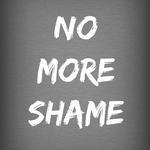 Announcing The #NoMoreShame Project
Announcing The #NoMoreShame Project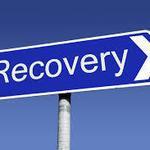 Childhood Sexual Abuse: To Tell or Not to Tell?
Childhood Sexual Abuse: To Tell or Not to Tell? Why We Stay: One Woman’s Lens Into The Psychological Layers of Suffering Abuse.
Why We Stay: One Woman’s Lens Into The Psychological Layers of Suffering Abuse. Intensive Therapy Groups for Survivors of Child Sexual Abuse
Intensive Therapy Groups for Survivors of Child Sexual Abuse The many faces of “Humiliation”
The many faces of “Humiliation”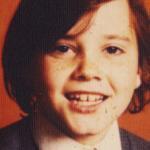 Man reveals pain and shame of being sexually abused as a child by female family friend
Man reveals pain and shame of being sexually abused as a child by female family friend Fox News’ “destructive” ignorance: Network gets schooled by male rape survivor
Fox News’ “destructive” ignorance: Network gets schooled by male rape survivor Helping rape survivors feel stronger through video, film & news media
Helping rape survivors feel stronger through video, film & news media Trauma: Childhood Sexual Abuse
Trauma: Childhood Sexual Abuse Carrying a mattress until a rapist is punished – and other examples of the culture we live in
Carrying a mattress until a rapist is punished – and other examples of the culture we live in
September 20, 2014
Why Trigger Warnings Empower Survivors
*Trigger Warning*
A talented author friend Amy Gigi Alexander pointed me to an opinion piece this past week in a journal (I’m purposely not sending you to it because, well, I’ll get further into that below), that stated with silly and outdated words (which the article author claims she used for effect) that trigger warnings for sexual abuse survivors are ‘poppycock.’ As is the right of the author and of the journal to share opinions, it is our right as readers to disagree. The reaction was swift: negative and uproarious from the survivor community (and I will say here, I like the journal — they typically publish great work).
The article author went on to say that while she herself is a rape ‘victim,’ she didn’t believe that trauma ‘victims’ could be triggered by reading content, and if we are, it’s because we’ve read too much misinformation on PTSD (which she claims is extremely rare and only exists in less than 2% of all (military, accidents, abuse) trauma ‘victims,’ and that all a trigger warning does is give us an opportunity to continue to ‘perpetuate avoidance,’ causing us to insulate ourselves from real life.
Finally, *trigger warning* she goes into an unrelated and extremely graphic description of a video of a young girl in third-world country being buried alive and stoned to death by a group of young men (with no warning and in far greater detail), which is where I stopped reading because, well, I WAS TRIGGERED.*
Let’s deconstruct.
TRIGGER WARNINGS
It wasn’t until I started writing my own book Broken Pieces, where I share my own experience with childhood sexual assault, rape, and other difficult topics, that I started to pay attention to and think about whether my content would trigger any readers who had survived such traumas themselves. I had a psychologist friend take a look, as well as an ER nurse, who had plenty of experience with trauma, particularly with rape kits in a trauma setting. With the exception of a few words (removed before release), they both gave me their approval. (Still, I do give readers plenty of warning that the material, while not graphic, can be triggering and is not appropriate for readers under eighteen.)
4 Top Tips for Creating A Spectacular Author Platform
September 14, 2014
The “Why” Behind Suicide by New Staff Columnist @TruthIsHers
As a therapist and trauma recovery coach I experienced significant distress among my clients this past week. Between World Suicide Awareness Day and the anniversary of 9/11 social media channels and the news were filled with triggering articles, posts, statuses and tweets. As a trauma and suicide survivor myself, I easily identified with the jangled nerves and recurrent painful thoughts that my clients were coping with. I get it. In a million ways, I get it.
Following the death of Robin Wiliams in August and now with September being National Suicide Prevention month it seems a day hasn’t passed where I haven’t seen an article, blog post or television report about the “why” behind people deciding to die by suicide. Some are quick to judge negatively, labeling the act selfish and an impulsive, permanent response to a temporary problem. Others make a valiant effort to unravel the complicated knot of feelings and circumstances that tangle together to create each individual’s “why”.
In the summer of 1994 I tried to kill myself. I’ve always been open about my experience, and have tried repeatedly to explain why I made the decision to die by my own hand. I haven’t always been successful in having others understand my “why”, starting from immediately after my attempt.
I’ve always been open about my experience, and have tried repeatedly to explain why I made the decision to die by my own hand. I haven’t always been successful in having others understand my “why”, starting from immediately after my attempt.
I remember lying in my hospital bed, after I regained consciousness, with wires and tubes running amok over and around me. In the hallway a doctor who had just spoken to me was, in turn, speaking to one of my nurses. I will never forget hearing him say “She had a spat with her boyfriend. That’s why she did it,” I wanted to scream, “No! That’s not it at all! That’s not what I said!” As tears flowed down my face I felt so misunderstood, judged and ashamed. It wasn’t about a silly “spat”. It was about years and years of pain, beginning with almost a decade of childhood sexual abuse, continuing with my husband betraying me and leaving for another woman, and building into unbearable agony following my fiancé telling me that he’d met someone else.
Yes, there are those rare suicides that stem from jealousy, guilt or an impulsive thought. But for 90% of those who kill themselves it’s about suffering from mental illness. It’s about pain, long term emotional agony. Yet, many people have never experienced such pain so they have a hard time wrapping their understanding around that explanation. Without that comprehension they revert back to interpreting the basis of the behavior through their own life lens.
Ironically, the “why” and the tragedy of 9/11 have come together to give me the best explanation I have ever heard for the reason behind one’s decision to die by their own hand. I remember watching the television footage on 9/11. One of the most difficult things to watch was the people jumping from the World Trade Towers to escape the explosive flames burning within the buildings. There was no way those individuals would live. None whatsoever. It was heart breaking to watch.
The reason why those people jumped is same the reason why most people choose to kill themselves. They want(ed) to escape the agony of burning alive. It wasn’t that they wanted to die. That wasn’t it at all. They wanted to live. But to live meant to face the pain of the raging fire. Circumstances had boxed them into a horrific corner with only two options. Given that, they chose what they felt was the lesser of two evils.
THAT is why people choose suicide. It isn’t that we want to die. We just don’t want to be in pain anymore. I realize not everyone will understand my comparison between emotional pain and the agony of burning alive. But those who have experienced emotional pain, especially long term emotional pain, will tell you that the feeling is a similar one.
Escaping the agony of decades of betrayal and abandonment, which had me convinced I was damaged beyond repair, is why I chose to take my life. I had never known life without pain, as my abuse started when I was a toddler. I didn’t know what it was like to live happily or with contentment. All I knew was pain. And I had reached my limit of enduring it. I had tried treatment, but unfortunately, the only options available to me were low quality and ineffectual. After decades of pain, with no hope that therapy or medication would alleviate my pain, I chose the only way I knew would permanently remove me from that pain.
As a society we need to do a much better job of providing high quality, easily accessible mental health care. And as individuals we need to seek an understanding of the pain those with mental illness endure every day, especially without the high quality, easy to obtain, treatment they need. Circumstances often box them into a horrible place where their choices are very, very few. Judgment isn’t the answer, because as long as there is a negative societal judgment the worth of those with mental illness is diminished. In that environment, treatment options will remain limited. If we choose compassion I have no doubt that more mentally ill individuals will choose life.
Welcome to new staff columnist Bobbi Parish! I’m beyond thrilled to have Bobbi here every few weeks, and I know you will be, too. Please welcome her to RachelintheOC.com and enjoy her wisdom. I’m honored to have her and look forward to her regular contributions!
Related articles across the web
 World Suicide Prevention Day: 10 Common Myths about Suicide
World Suicide Prevention Day: 10 Common Myths about Suicide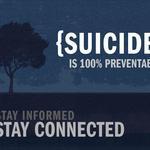 #suicideprevention Stay Connected
#suicideprevention Stay Connected On World Suicide Prevention Day, learn how to save lives
On World Suicide Prevention Day, learn how to save lives World Suicide Prevention Day – For Those Left Behind
World Suicide Prevention Day – For Those Left Behind 4 Ways You Can Help Prevent Suicide
4 Ways You Can Help Prevent Suicide
September 8, 2014
Let’s Talk Suicide and Compassion

Courtesy of FreeDigitalPhotos.net
If you want others to be happy, practice compassion.
If you want to be happy, practice compassion
~ The Dalai Lama
An English fellow with a fairly large following left a stark, terrifying message on his Facebook wall last week, a suicide note: he had swallowed a lethal dose of pills, he had given up, he was done.
Predictably, and with swift action, hundreds of people worldwide banded together to get him help and fortunately, help made it in time. We all breathed a collective sigh of relief. He was taken to hospital and it is our hope, got the psychiatric help he desperately needs. The wonders of social media — saving a life, yea? Lots of shit happens on social media — awful, terrible things. But this was one instance where I felt buoyed by the wonders of technology!
I don’t know this man well, other than a few retweets here and there and reading a few of his blog posts. We’re not good friends, but he seems like a nice enough guy who has been going through a rough time. We’ve all known rough times. Having compassion for another is part of being human. So when I saw people criticize him for leaving his suicide note on Facebook, telling him to just get it over with, calling him a ‘coward,’ and other such bitter ‘tough love’ armchair psychobabble, I was appalled. Shocked. Upset.
But not all that surprised.
SUICIDE PREVENTION
September is National Suicide Prevention Month.
‘According to the World Health Organization (WHO), nearly 3000 people on average commit suicide daily. Suicide rates are at an all time high for veterans. In addition, for every person who commits suicide, 20 or more others attempt to end their lives.’
About one million people die by suicide each year (WHO). World Suicide Prevention Day, which first started in 2003, is recognized annually on Septembr 10. World Suicide Prevention Day aims to:
Raise awareness that suicide is preventable
Improve education about suicide
Spread information about suicide awareness
Decrease stigmatization regarding suicide
This is most staggering to me: 90% of people who die by #suicide have a diagnosable/treatable psychiatric disorder at the time of their death. Youth is especially at risk (bullying, gays, etc. Read more here at The Semicolon Project).
MY EXPERIENCE
I’ve not personally tried to kill myself, though the thought crossed my mind when I was in the midst of experiencing the childhood sexual abuse I write about in Broken Pieces (I was eleven). It wasn’t until recently that I’ve been able to recognize and admit that. Not because of the stigma — if anything, I’m an open book. No, it’s more because I didn’t realize that what I was feeling — that complete desperation of wanting to make it just stop, and looking for ways to make that happen — was me actually considering it. Looking in my folks’ medicine cabinet and opening bottles of mystifying names colors stumped that lost, young child. A good thing, I realize now.
Fortunately, it never went further for me, despite depression, anxiety, and PTSD — I sought help as an adult and continue treatment (medical and therapeutic) to this day. The few times I’ve attempted to stop meds, the gray closes in. So, I accepted long ago that I will continue to go with what works for me. Because, despite what anybody else says about me or how they think I should be doing things, my depression belongs to me and not to anyone else.
COMPASSION
A few years ago, an ex-lover shot himself in the heart. It was as shocking as you would imagine it to be. We hadn’t seen each other in over twenty years though we had been in touch. In fact, we had chatted that day at lunch and I had no idea that anything was wrong. Those closest to him knew though, and, as I discovered later, not only was he an alcoholic, he had suffered from depression (most likely untreated bipoloar, given his predilection for high-risk behavior — drugs, bull-riding, black-diamond skiing, etc).
Many people who knew him felt what he did was incredibly selfish — he had a young son, debts, etc. I didn’t agree, and I still don’t. What’s lacking in that attitude is compassion, and let’s face it, respect. His burden became to heavy to carry any longer. It was his life. I felt the same with the fellow I mentioned at the beginning, as well as with Robin Williams’ tragic death. Who are we to play judge and jury with someone else’s life?
If someone is in pain and we know, we reach out. That is what good people do. Even if we don’t know what to do or how to do it, we reach out. That’s where compassion comes in. Being there is often enough. Calling someone names or making judgments about them says far more about those who say those things than it ever says about the person they are targeting. What are these people thinking?
(Compassion is my watchword for this year, and I’m trying really hard to have compassion for the people saying these really awful things, but I’m not perfect. They really pissed me off. The best I can come up with is that they must be speaking from a place of their own great loss and pain, and I hope they follow their own advice and seek help as well.)
Before you make a flippant comment, remember, this IS life or death.
We can never judge the lives of others, because each person knows only their own pain and renunciation. It’s one thing to feel that you are on the right path, but it’s another to think that yours is the only path.’
~ Paulo Coelho
Related articles across the web
 Depression and suicide prevention must be top of the agenda this century
Depression and suicide prevention must be top of the agenda this century Beating the bleak: Midstate groups work to prevent suicide
Beating the bleak: Midstate groups work to prevent suicide World Suicide Prevention Day – suicide takes more lives than war
World Suicide Prevention Day – suicide takes more lives than war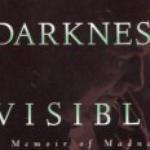 Call depression what it really is… in memory of Robin Williams, RIP
Call depression what it really is… in memory of Robin Williams, RIP WAVY helps lead suicide awareness “Out of the Darkness”
WAVY helps lead suicide awareness “Out of the Darkness” WHO Report Maps Global Suicide Problem for the First Time
WHO Report Maps Global Suicide Problem for the First Time Suicide Prevention Workshop being held in Duncan Sept. 18
Suicide Prevention Workshop being held in Duncan Sept. 18 SUICIDE: A note to every Filipino
SUICIDE: A note to every Filipino Suicide is everyone’s business, you can make a difference
Suicide is everyone’s business, you can make a difference Suicide Awarness Month; Know the Warning Signs
Suicide Awarness Month; Know the Warning Signs
September 7, 2014
#MondayBlogs Giveaway September 2014
Since I created #MondayBlogs in late 2012, even I’m shocked at what an amazing success it has become! Thousands participate each week, generating more than 5,000 tweets! And it is because of all of you that we can say that with a lot of pride and a big ol’ smile! As a thank you to all you wonderful #MondayBlogs tweeps, we launched an ongoing, monthly contest in April and we couldn’t be happier with the response!
The Featured Monday Blogger giveaway is our way to say thank you for participating in #MondayBlogs by giving you more exposure for you and your blog. Each Monday for one month, you could have a different tweet sent out by @MondayBlogs to all our followers and be featured on IndieBookPromo.com! But wait, there’s more! Following you, the lucky winner, on Twitter would enter others into the next month’s contest!
Nice bit of exposure, don’t ya think?
That sound like something you’d be interested in?
If so, enter now!
Featured Blogger August 2014
Shikha at Shikha La Mode
Happy Sharing,
Rachel, Will, and Kate

